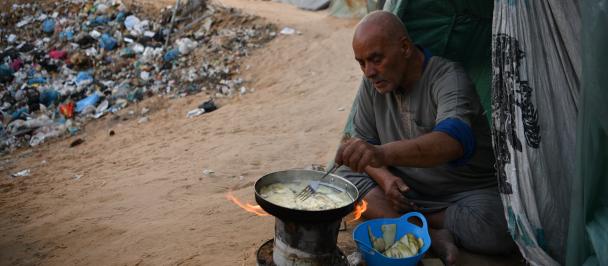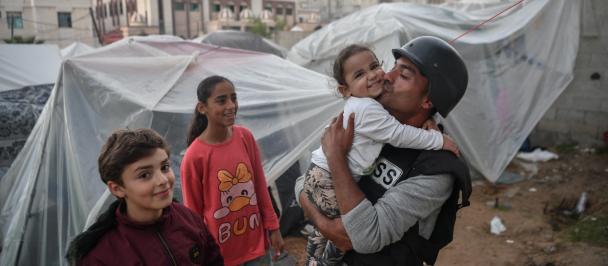Life in Gaza under war, through Iman’s eyes
November 17, 2023
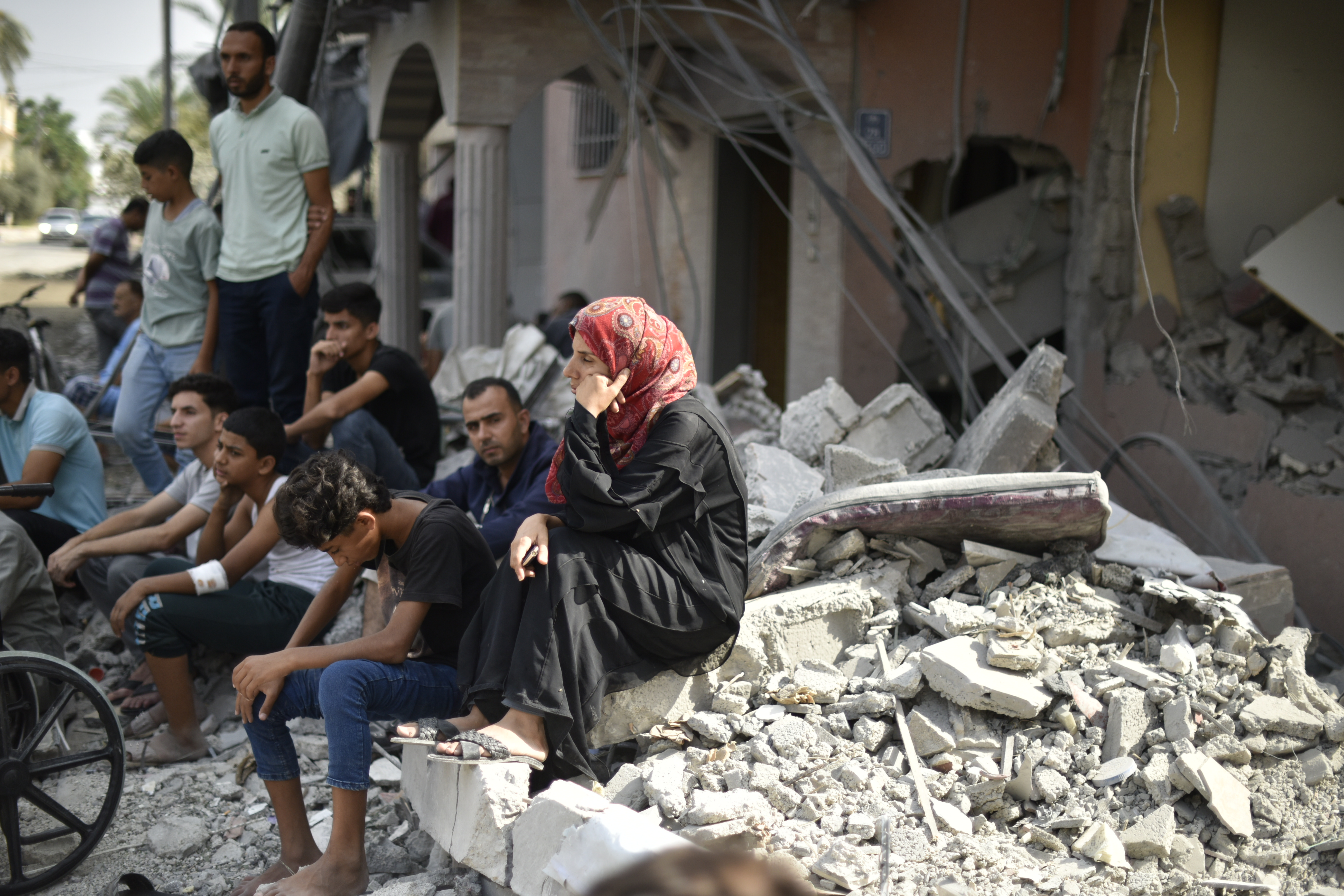
People sitting outside on the street People sitting outside on the street The war in Gaza is reversing years of human development in the occupied Palestinian territory and pushing hundreds of thousands of people into poverty, according to a rapid assessment by UNDP and the Economic and Social Commission for Western Asia.
In Gaza, a place where resilience and uncertainty intertwine in the daily lives of its people, Iman Husseini, the Assistant Special Representative of UNDP’s Programme of Assistance to the Palestinian People, has dedicated her life to serving her fellow Gazans as they deal with many challenges, including high levels of poverty and unemployment. And as a resident of Gaza, she shares many of those constraints.
“Before the current war, I led a modest life under generally difficult conditions, with limited access to electricity, drinkable water, and freedom of movement for people. Over the weekends, we used to enjoy some leisure time with our families, going to restaurants overlooking the Mediterranean Sea and enjoying the tranquillity of the sunset. Overall, it was a quiet life, but still unpredictable.”
The situation in Gaza was dire even before the current escalation. The war is reversing years of human development in the occupied Palestinian territory, according to a preliminary assessment by UNDP and the Economic and Social Commission for Western Asia (ESCWA).
Now, the total siege on Gaza, in its second month since the beginning of the war, has disrupted essential resources, including food supplies, drinking water and electricity in addition to medicines and health services, affecting all 2.3 million residents. Iman’s responsibilities have grown, as her usual team of 57 people now includes their dependents, all sheltering in place.
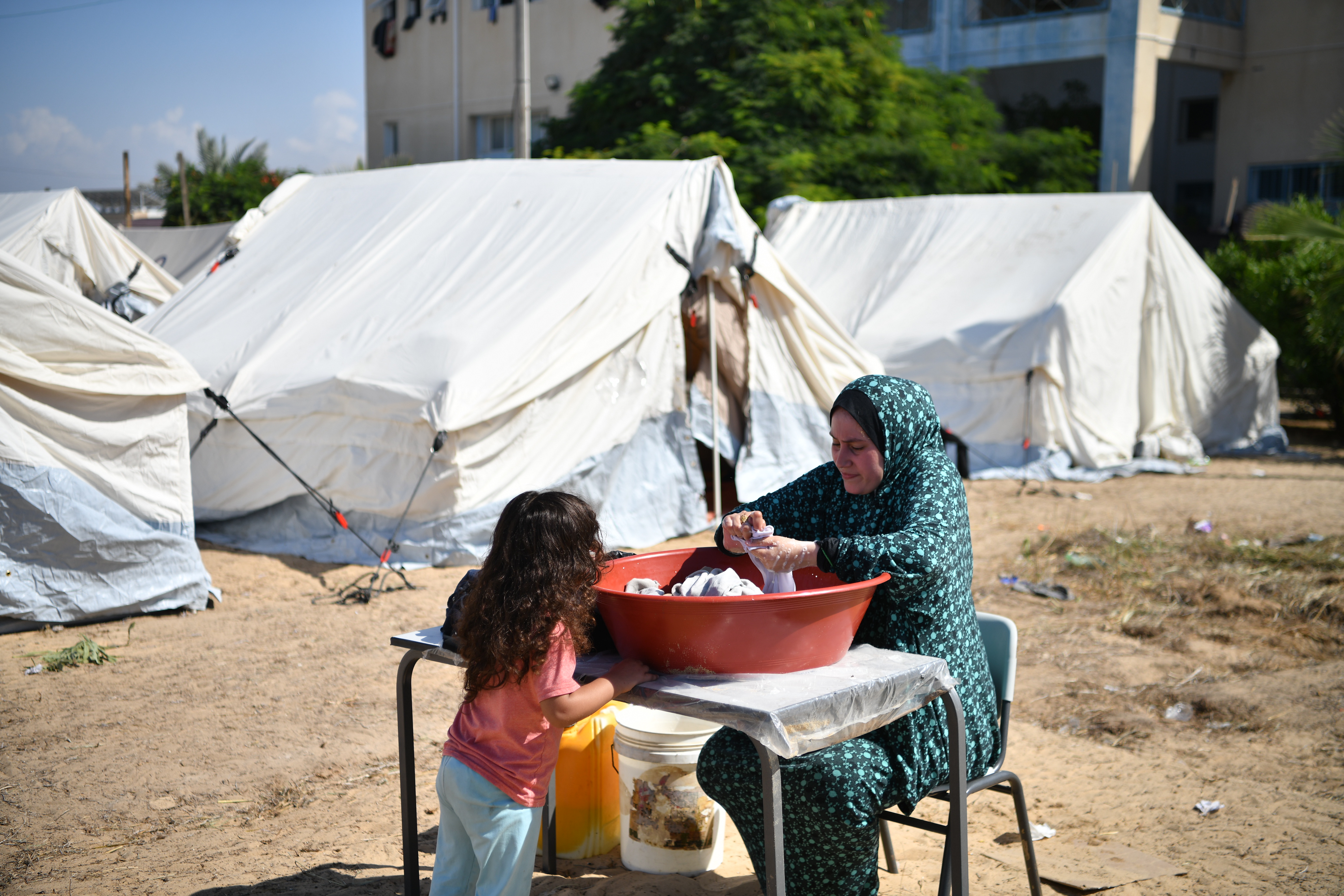
Woman and child More than 11,000 people have been killed in Gaza since the beginning of the current war; 1.6 million people have been forced to flee their homes.
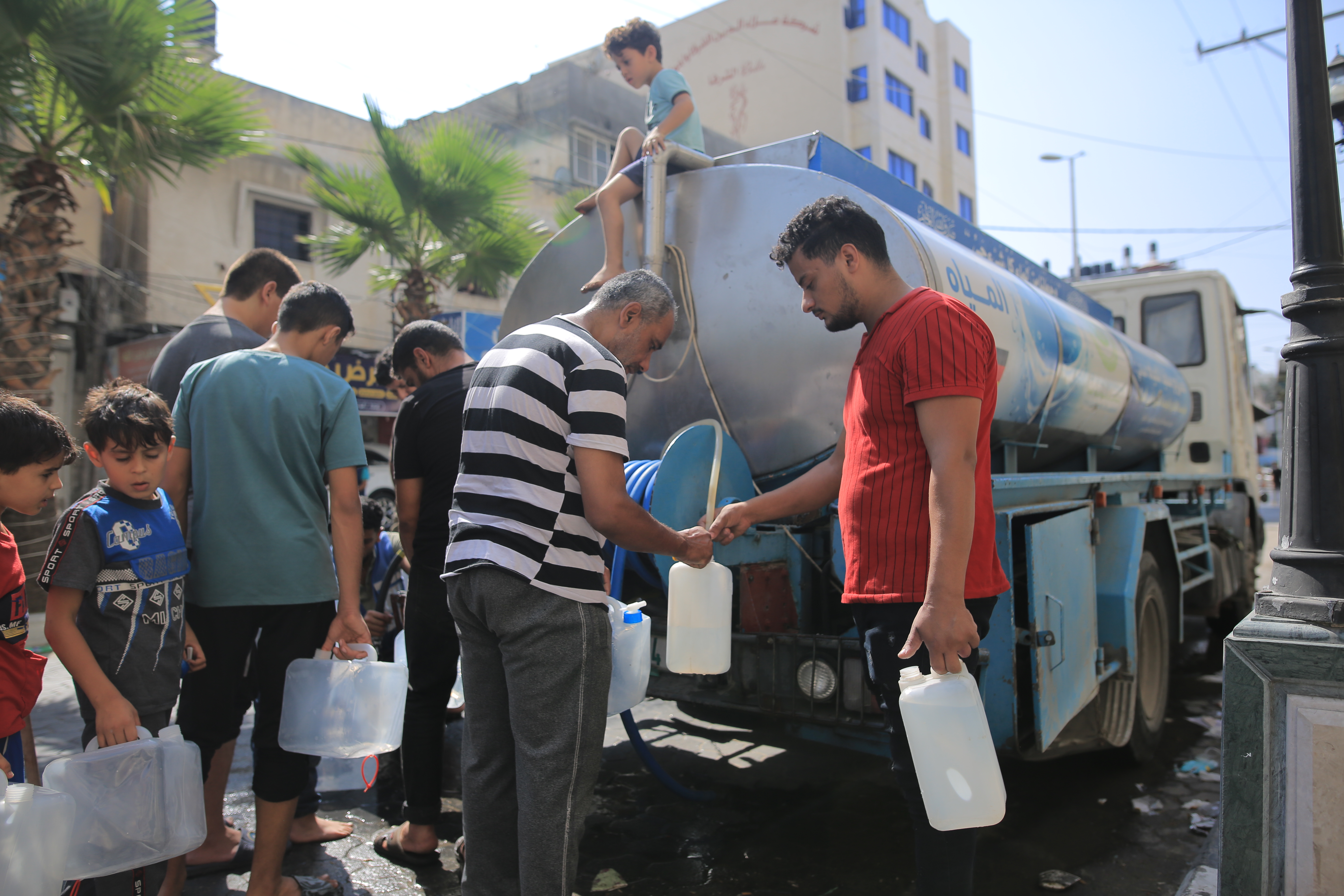
People getting water The war has disrupted supplies of essential resources, including food, drinking water, electricity and medicine.
“To be frank, the responsibility I hold on my shoulders is not easy. On the personal level, I am a mother and a wife. My husband is a person with disability and depends on my support. With the number of people we are sheltering, I am urging everyone to stay safe and avoid injuries or illness due to limited access to healthcare. I have become a mother for all the 145 people we are hosting.”
Iman’s duties now encompass ensuring their safety, managing the shelter’s resources and social relations and liaising with her security advisor and the crisis management team.
“It is a new experience for me, exhausting, yet inspiring in many aspects. Our main priority is the safety and protection of our staff, whom we rely on to lead the recovery and reconstruction efforts upon the end of the current war.”
Iman coordinates UNDP’s work in Gaza, which aims to improve the lives of the most vulnerable, by creating employment opportunities, bolstering democratic governance and the private sector and utilizing Gaza's natural resources sustainably, such as harnessing solar power, to keep schools and hospitals running.
“We have worked tirelessly to shift from recovery mode to a more resilience-building approach in our economic portfolio, tapping into private sector resources and the potential for reviving an inclusive, independent economy, capitalizing on the Palestinian resources.”
"We were all lost and unable to imagine what the coming days would bring." - Iman Husseini, Assistant Special Representative, UNDP Programme of Assistance to the Palestinian People
Iman is particularly proud of a solar-powered wastewater treatment project in Khan Yunis, which improved hygiene services for more than 350,000 people and protected the Mediterranean Sea from pollution.
“Amidst all the support we provided, what touches me the most are the smiles I see on the faces of people we serve during field visits, and the real sustainable opportunities we have created for youth, women and their families.”
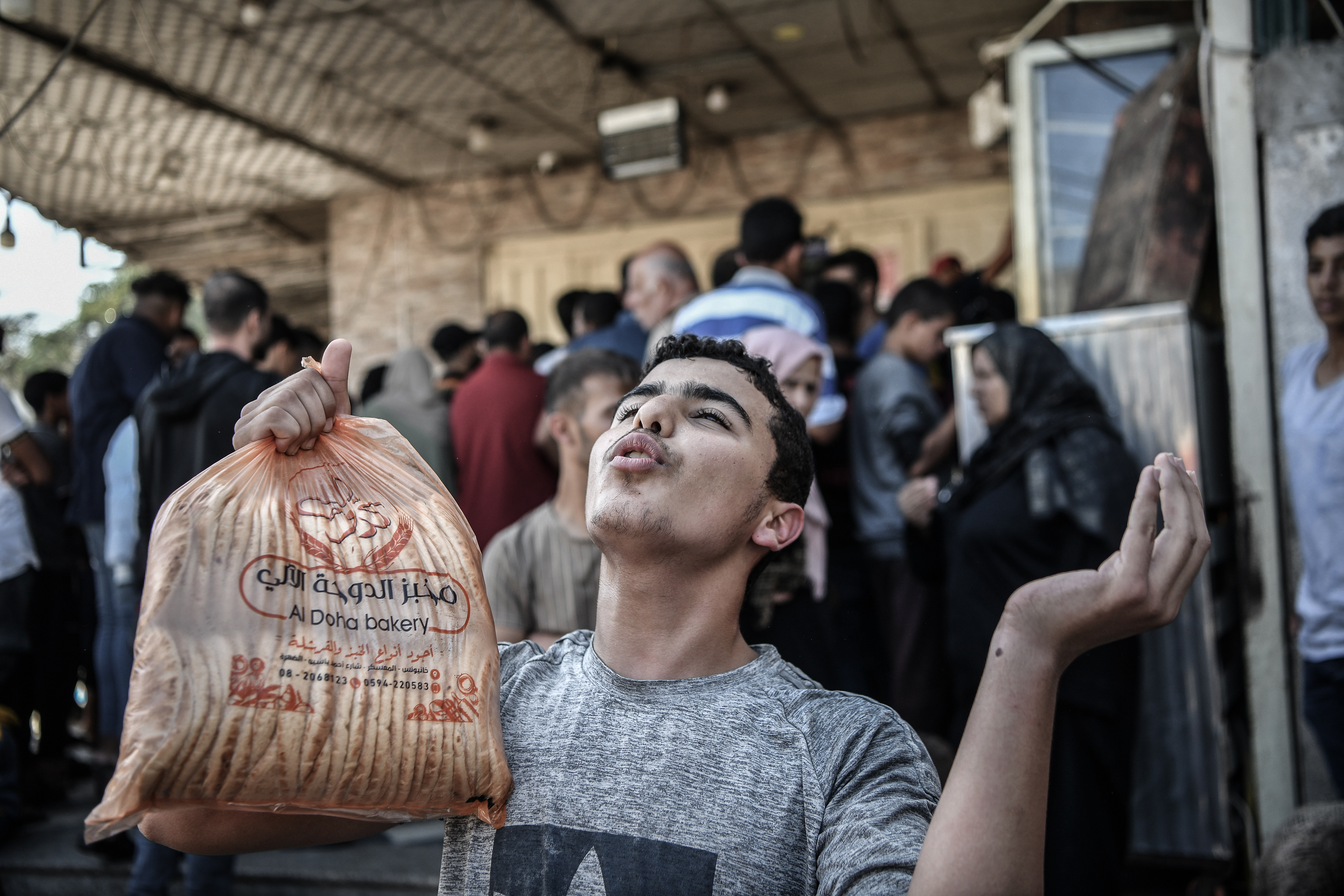
Condition in Gaza was dire even before the current escalation, but the scale of devastation is unprecedented
Iman’s life’s work took a shocking turn with the beginning of the war, when she woke to the sounds of bombs and rockets.
“We were all lost and unable to imagine what the coming days would bring.”
As the war hit the one-month mark, the UNDP-ESCWA report estimated that poverty had risen by 20 percent and GDP had declined by 4.2 percent. A third month of war would see poverty increase by almost 45 percent, raising the number of additional people pushed into poverty to more than 660,000.
"I need the world to recognize us as human beings. We have families we love and care for. We love life and we aspire to live safely and with dignity." - Iman Husseini, Assistant Special Representative, UNDP Programme of Assistance to the Palestinian People
Despite the overwhelming challenges, the UNDP team on the ground is continuously assessing priority needs and is preparing reconstruction and recovery plans. UNDP is set to reprioritize its support to address the urgent needs of the people.
After just one month, the scale of devastation and loss of lives and property is already unprecedented, with no end in sight. Iman anticipates immense difficulties once the war does cease, given the substantial funding requirements and the restrictions on the movement of people and goods.
She says it would help for the world to see Gaza through her eyes. “I need the world to recognize us as human beings. We have families we love and care for. We love life and we aspire to live safely and with dignity. We urge the world to support us in stopping the madness surrounding us.”

 Locations
Locations
